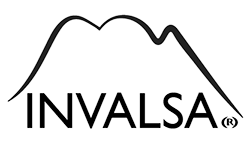| Origin |
Burundi |
| Region |
Kayanza Province |
| Farm / Coop |
Kinyovu Washing Station, in Matongo Community |
| Altitude |
1,880 meters (5,828 feet) |
| Varietals |
100% Bourbon |
| Processing |
Fully washed |
| Certifications |
IWCA Burundi. Women-grown certified |
| The Coffee Review Cupping Notes |
Score: 92.0 Blind Assessment: Sweetly roast-toned, chocolaty. Dark chocolate, lily, vanilla, dried fig, scorched cedar in aroma and cup. Bittersweet-savory structure; crisp yet velvety mouthfeel. Dark chocolate notes lead in the finish, rounding to dried fruit and vanilla notes in the long.
|
We are proud to report that on The Coffee Review this coffee earned the third-highest rating in a cupping of African Great Lakes coffees for Coffee Review’s June 2021 report. Moreover it earned the distinct motion for a successful dark toast: "Most coffees we test over the course of a year are light-medium to medium in roast, reflecting each individual roaster’s personally calibrated goal of fully developing the character of the bean while leaving behind neither a distracting scorchy edge nor the grassy, nutty hints of an underdeveloped roast. This month, however, we review one successful darker roast, the Valverde Burundi Kinyovu (92; sweetly roast-toned, roundly pungent and chocolaty).
The Coffee Review Notes: This coffee earned a third-highest rating in a cupping of African Great Lakes coffees for Coffee Review’s June 2021 report. Produced by smallholding women farmers near the Kinyovu Washing Station entirely from local strains of the Bourbon variety of Arabica, and processed by the washed method (fruit skin and flesh are removed from the beans before they are dried). Valverde Coffee Roasters is a specialty roaster with locations in Salisbury, Massachusetts and La Paz, Bolivia.
The Coffee Review Bottom Line: An inviting darker-roasted Burundi with deep, rich chocolate notes throughout, complicated by sweet florals, dried fruit, and a pleasingly smoky cedar.
With the help of Nelson's "African sister", Jeanine Niyonzima-Aroian of JNP Coffee, we are very happy to offer this special micro-lot from the Kinyovu Washing Station in the Kayanza Province in northern Burundi, near the Rwanda border. IWCA Burundi has about 2,000 members from 5 different washing stations: Karehe, Kinyovu, Mutumba, Mutsinda and Kirema. The program is based on training women farmers to produce high quality coffee and improve household incomes.
Historically, this coffee was a first-place winner of the coveted Cup of Excellence in 2013. Processed through one of Burundi’s few double fermentation washing stations, Kinyovu coffee cherries are cultivated by women coffee farmers in a high-altitude micro climate, grown among tea, bananas, beans and cassava plants. Through a partnership with a nonprofit organization of women and men in the coffee industry, these farmers receive training on best practices for quality coffee production, from caring for the trees to careful sorting of the ripened cherries during harvest. JNP Coffee pays women farmers a share of the premium for their high-quality coffee earns in the global market. These payments enable new economic opportunities and provide a better quality of life for their families, especially their children.
In 2017, 1,146 farmers under the IWCA Burundi’s program brought cherries at Kinyovu washing station, 1,057 were women and 89 men (also allowed to be part of the program). Thus, 92% of he farmers at Kinyovu are women. The washing station is part of the 21 washing stations under the Sogestal Kayanza umbrella, which is majority owned by private individuals (including Jeanine) with a small percentage remaining under the government ownership (planned to be privatized in the future). Each washing station has an independent general manager and an independent quality manager. The average yearly production of Specialty coffee from Kinyovu is 60,000 kilograms (about three containers) of green export coffee.
Nelson had the pleasure of meeting some of the Kinyovu/Matongo farmers when he was a judge at the first-ever Burundi Cup of Excellence competition in 2012.
This is our second purchase of the Matongo community, but we plan on offering it on a regular basis.

